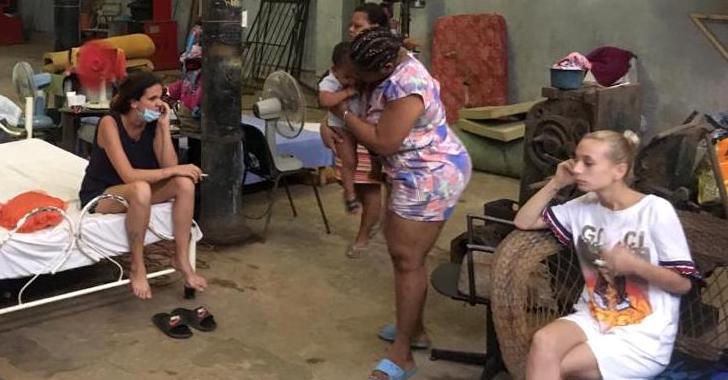The housing problem is one of Cuba's most serious, damping the birth rate. In 2020, according to a report from the Ministry of Public Health, 105,030 children were born on the island, 4,686 less than in 2019, when 109,707 were recorded, about 6,626 less compared to 2018. Cuba has the oldest population in the region, with 2,328,000 seniors, making up 20% of the population. In 2025 it will break its own record, with 25% of the population over 65.
In order to boost the birth rate the state promised housing solutions to mothers with three or more children, or in vulnerable situations. However, it has recently recognized that only 5,735 of the more than 28,000 women who (according to its own figures) live in this situation have received a home in recent years.
What are the other women, more than 22,000, supposed to do? How can they solve their problem?
DIARIO DE CUBA has published several stories of mothers with children who, due to a lack of options, have occupied abandoned state locales that do not even meet the minimum habitability conditions, but provide them with a roof over their heads, and seem safer than other dwellings on the verge of potentially lethal collapses. Other families build houses on land that they do not own.
This type of case is analyzed by the Municipal Assemblies’ Illegalities Commissions, with participation by Housing officials, the police, and the courts, who draw up the strategies to remove the occupants.
The declaration of illegal occupants is the responsibility of the Housing Directorates, and the decisions are made and executed by these entities as per the General Housing Law and Resolution 376/2009: "Procedure for the Declaration of Illegal Occupants and its Execution."
According to Article 115 of the General Housing Law, the Municipal Housing Directorate is to declare occupants illegal within 30 working days of confirming that they are "persons who violently or clandestinely occupy a home, or those who occupy or continue to occupy a home whose owner permanently leaves the country, or dies, without complying with the requirements established in this Law and its complementary provisions." Also falling in this category are those who "build without complying with the established regulations, or with materials whose origin they cannot prove, or who occupy a home built on land owned by the state, another person, or whose ownership is not known." Likewise, those who "occupy or continue to occupy, without the right to do so, a house or premises owned by the State given on a lease" are illegal.
In accordance with Resolution 376/2009, "the municipal housing directorates handle, via a very summary procedure, the immediate expulsion of those who enter clandestinely or violently a state or private home, or rooms, or outbuildings, regardless of how this comes to be known."
When people occupy the premises of state entities, they can face criminal charges, as per Article 333 of the Penal Code, with sentences ranging from three months and three years to a fine of 300 - 1,000, or both, depending on the circumstances.
The Cuban state always demonstrates greater efficiency when it comes to applying punishments than finding solutions. What happens to those people after the "extraction?" (A revolutionary euphemism to avoid the word "eviction") How do "extractions" or prison sentences solve the country's housing problem, in general, and that of women with children, in particular? How do they help to bolster the birth rate?
Article 3 of Agreement 8574/2019 of the Council of Ministers for the application of the process for the organization and legalization of housing establishes that the process is to take place over the course of six years. This agreement, however, has barely been implemented for state entities and their premises since its entry into force.
Agreement 8575/2019 of the Council of Ministers, meanwhile, charges the Physical Planning Institute with the organization, approval and oversight of the process by which the usage of premises is shifted to housing functions and other ones, for which the premises are to be surveyed. The objective of both agreements was to alleviate the country's housing deficit.
The Housing Law in force in Cuba dates from 1988. After several makeshift solutions through decree laws that have been modifying it, the drafting of a new law is finally on the legislative schedule.
The body in charge of drafting it could provide solutions for the unused premises of state entities that are deteriorating, in order to assign them to these people, especially mothers with children currently occupying them illegally.
What should be illegal is for a company to have six years to decide what to do with empty premises, while there are people without homes, or in ones in danger of collapsing on them.
Although not complying with minimum habitability conditions, and far removed from the decent housing for each Cuban that Fidel Castro promised more than half a century ago, these places could provide a temporary solution for the more than 22,000 mothers of three or more children who are waiting for the government to provide them with housing.
They could also help alleviate the situation of women with fewer children who do not qualify for this program, despite the fact that their living conditions are equally precarious.
